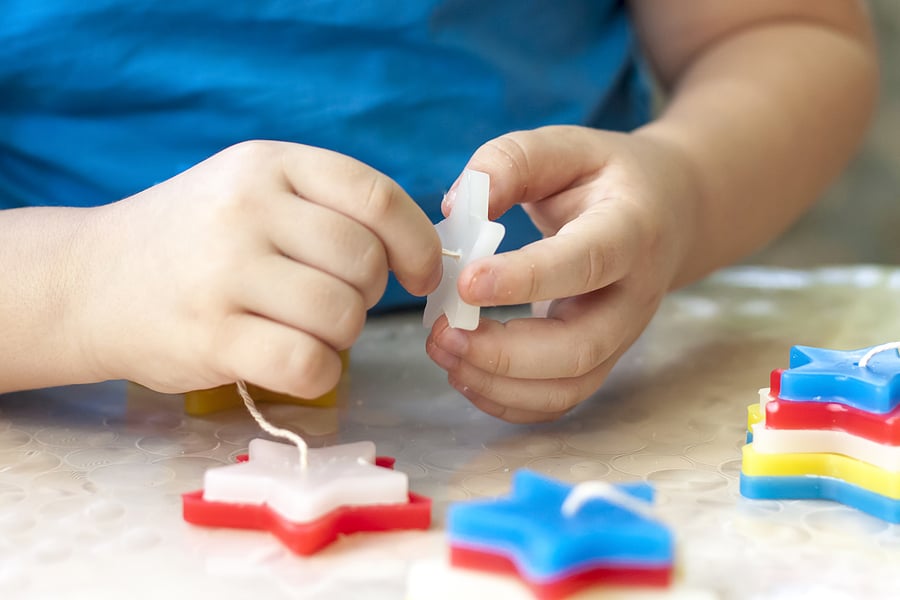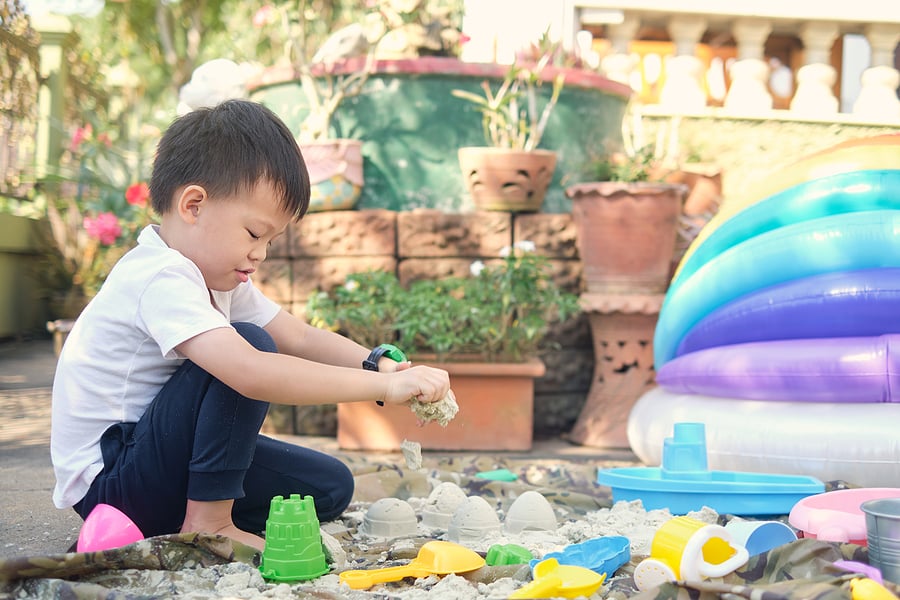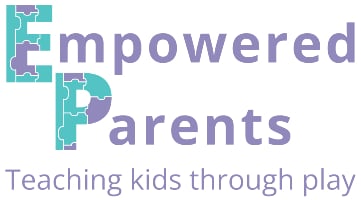Why do fine motor skills matter so much in the early years and why should we make developing them a priority?
Here are the reasons we encourage babies to explore objects with their little hands and why we should get our toddlers and preschoolers involved in fine motor activities daily.
What are Fine Motor Skills?
The term ‘fine motor’ refers to the small muscles of the body, such as the fingers, hands, tongue, toes and eyes.
Fine motor skill is the ability to control these fine muscles – especially in the hands and eyes – to accomplish movements and tasks.
Examples of Fine Motor Skills
Some examples of fine motor skills are:
- Learning to hold something between the thumb and forefinger
- Screwing a lid onto a container
- Using a knife and fork when eating
- Threading beads onto a string
- Writing

Why Are Fine Motor Skills Important in a Child’s Development?
Here is a brief overview of the importance of fine motor skills in the early years.
1. Physical Development
In early childhood, kids need to develop holistically, which includes physical, intellectual (cognitive), social and emotional development.
Physical development is an important piece of the puzzle and includes:
- Gross motor (large muscles)
- Fine motor
- Eye-foot and eye-hand coordination
- Midline crossing
- Direction
- Dominance (left or right handed or footed)
- Body awareness and spatial awareness
Skills do not develop independently in the body – all parts of the body must work together and all affect each other.
To kick a ball the eye muscles, leg and feet muscles must work together; to write children need to control a pencil, track with their eyes, cross the midline, etc.
So, why are motor skills important in education?
Both fine and gross motor skill development is important because academic success relies on a child having good control of their muscles.
They need a strong core and good posture to sit at a desk without tiring, eye muscles that can track while reading, a good pencil grip and finger control to form letters when writing, and lots more.

2. Independence
One of the most important benefits of having good fine motor control is that it gives children a level of independence.
Without that control, a baby relies on his mother to hold his bottle, a toddler can’t build her puzzle, and a preschooler can’t unzip his bag to take something out.
Just like a child needs to develop language and vocabulary to be able to communicate his needs, building physical skills is the quickest route to independence and being able to do things for himself.
Independence is great for a child’s sense of achievement and builds confidence to tackle more and more things.
3. Self-Care
Almost all self-care tasks rely on using the small muscles of the body – especially the hands.
Self-care tasks include things like:
- Feeding oneself
- Dressing
- Tying shoelaces
- Brushing teeth
- Washing hands
- Going to the toilet
- Preparing simple foods
- Packing away toys
- Brushing hair

Developing fine motor skills is like the ticket to freedom and being able to take care of yourself.
If you have heard a toddler stubbornly announce “I want to do it by myself”, you will appreciate the value children place on being able to take care of themselves.
4. Daily Tasks
Apart from self-care tasks, so many other things you do in a day require some type of fine motor coordination, including leisure activities.
Here are just a few examples:
- Putting a seat belt on
- Turning the pages of a book
- Operating a remote control for the television
- Typing a message on a mobile phone
- Playing with toys
- Opening a window
- Placing groceries in the fridge
- Crumpling or tearing a paper to discard it
5. Play Activities
During the preschool years, children are participating in all kinds of fine motor activities at home and at school.
They need a level of fine motor control to be able to participate in these activities at all, and of course, these activities are actually further developing their skill in preparation for formal schooling later.
Play activities such as puzzles, pegboards, playing dress-up, painting, playing in the sandpit, water play and so many other activities and fine motor skills toys require a fair level of skill.

6. Drawing
Drawing is one of the most crucial activities in early childhood.
As children progress through the stages of drawing, they show their maturity and ever-increasing cognitive understanding through their drawings.
Their drawings show their understanding of the world and its concepts, and their ability to hold and control drawing tools like crayons.
Drawing a person, for example, is a fine motor milestone that shows a child’s level of body awareness.
Drawing is a pre-writing skill. Long before children learn to form letters, they must develop control with drawing tools such as crayons, markers, pencils and chalk.
This includes painting too, which should be encouraged often.
7. Learning to Write
One of the most important reasons kids need fine motor control is to be able to learn to write.
This is not a skill that should be pushed early but rather one that will develop when children have had years of exposure to play activities, as mentioned above.
Teaching a child to write too early does not help them learn to write. In fact, it has little value. Their fingers are not even developed enough at a young age.
Children need to first develop through play, and when they are mature enough and have the necessary physical control, learning to write will be fairly easy and natural.

Why are fine motor skills important for handwriting?
Children need finger strength and control to be able to hold writing tools and form letters carefully.
It takes a lot of control to write on a line, in small letters – which is why kids are first taught to write larger letters.
They also need to learn to space them correctly and they should be able to apply the correct pressure to the paper so they don’t tire easily.
There are many factors that go into learning to write. Good fine motor skills are therefore important for school readiness.
8. Academic Success
Fine motor skills affect not just a child’s ability to write, but also their ability to cope with the general academic demands of school.
They need to be able to keep up with multiple lessons in a day – many of which will be spent writing.
They must be able to write without tiring and complete tasks on time.
Children with poor control often struggle to complete tasks and then fall behind or can’t keep up with the pace.
They sometimes avoid tasks if it feels too challenging. This can even be seen at a preschool level.
This in turn affects their feeling of competence and their willingness to participate in tasks.
9. Developing Concentration
These kinds of activities – by their nature – are great at developing concentration span.
Fine motor activities usually require a child to sit still for a period of time and focus on the task at hand.
The more kids do these kinds of activities, the longer their attention spans grow over time.
These are just a few examples of the importance of fine motor skills for preschoolers and kindergarteners. As you can see, fine motor development affects so many areas of a child’s life.
Source:
“The Young Child in Context: A psycho-social perspective“, written by Marike de Witt.


Jibowu Praise
Wednesday 18th of May 2022
These article is highly informative Thumbs up
Tanja Mcilroy
Thursday 19th of May 2022
Thanks for your comment!
Irene
Wednesday 27th of April 2022
Very informative articles. Thank you.
Tanja Mcilroy
Friday 29th of April 2022
Thanks, Irene!